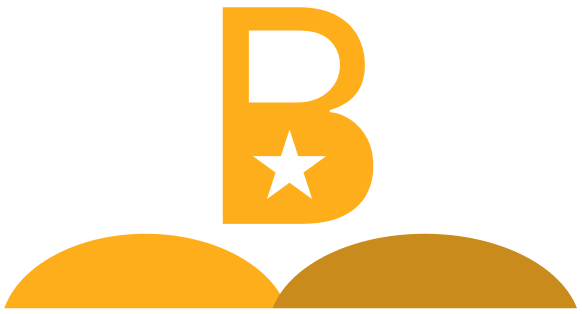10 Best Economics Books to Deepen Your Knowledge in Economics
If counting money and deciphering the Wall Street's crystal ball are your ideas of fun, or perhaps you're just curious about the mysterious forces that drive globes and cent wallets, then this list is certainly for you. This humble roundup of the 10 best economics books is not just for economists or aspiring financial gurus, but for anyone with a curious mind and a thirst for understanding how the world really works. Be warned though! No, they're not your average bedtime stories nor whimsical day reads. These books will make you think, question, and sometimes, startle you by holding up a mirror to the nuances of the global economy. There’s everything from fascinating insights into global economic trends to practical advice on personal finance management. Whether economics is your passion, profession, or just a pesky subject you need to deal with, these books are designed to stretch your mind, deepen your understanding, and potentially change the way you see the economy and your own wallet. So strap in your intellectual seatbelts, because you are about to embark on a thrilling ride into the intriguing world of economics!
『Freakonomics』
The legendary bestseller that made millions look at the world in a radically different way returns in a new edition, now including an exclusive discussion between the authors and bestselling professor of psychology Angela Duckworth. Which is more dangerous, a gun or a swimming pool? Which should be feared more: snakes or french fries? Why do sumo wrestlers cheat? In this groundbreaking book, leading economist Steven Levitt—Professor of Economics at the University of Chicago and winner of the American Economic Association’s John Bates Clark medal for the economist under 40 who has made the greatest contribution to the discipline—reveals that the answers. Joined by acclaimed author and podcast host Stephen J. Dubner, Levitt presents a brilliant—and brilliantly entertaining—account of how incentives of the most hidden sort drive behavior in ways that turn conventional wisdom on its head.
| Author | Steven D. Levitt/Stephen J. Dubner |
|---|---|
| Price | unknown |
| Publisher | Harper Collins |
| Release Date | Sep 20, 2011 |
| Source | Google Books |
『The Black Swan』
In the author's point of view, a black swan is an improbable event with three principal characteristics - It is unpredictable; it carries a massive impact; and, after the fact, we concoct an explanation that makes it appear less random, and more predictable, than it was. Why do we not acknowledge the phenomenon of black swans until after they occur? Part of the answer, according to Taleb, is that humans are hardwired to learn specifics when they should be focused on generalities. We concentrate on things we already know and time and time again fail to take into consideration what we don't know. We are, therefore, unable to truly estimate opportunities, too vulnerable to the impulse to simplify, narrate, and categorize, and not open enough to rewarding those who can imagine the 'impossible'.
| Author | Nassim Nicholas Taleb |
|---|---|
| Price | unknown |
| Publisher | Random House Digital, Inc. |
| Release Date | Oct 13, 2009 |
| Source | Google Books |
『Economics For Dummies』
Grasp the history, principles, theories, and terminology of economics with this updated bestseller Since the initial publication of Economics For Dummies in 2005, the U.S. has endured a number of drastic changes and events that sent its economy into a tailspin. This newly revised edition presents updated material about the recent financial crisis and the steps taken to repair it. Packed with refreshed information and relevant new examples from today's economy, it gives you a straightforward, easy-to-grasp understanding of how the economy functions-and how it influences personal finances. New information on deciphering consumer behavior Refresh coverage of fiscal and monetary policies A new chapter on health care policy and the financial crisis Presenting complex theories in simple terms and helping you decode the jargon, understand the equations, and debunk the common misconceptions, Economics For Dummies tackles the topic in terms you can understand.
| Author | Sean Masaki Flynn |
|---|---|
| Price | unknown |
| Publisher | John Wiley & Sons |
| Release Date | Mar 10, 2011 |
| Source | Google Books |
『Naked Economics: Undressing the Dismal Science』
Seeks to provide an engaging and comprehensive primer to economics that explains key concepts without technical jargon and using common-sense examples.
| Author | Charles Wheelan |
|---|---|
| Price | unknown |
| Publisher | W. W. Norton & Company |
| Release Date | Sep 17, 2003 |
| Source | Google Books |
『Economics in One Lesson』
Over a million copies sold! A fundamental influence on modern libertarianism, this classic guide to the basics of economic theory defends capitalism and the free market from economic myths that persist to this day. “A magnificent job of theoretical exposition.”—Ayn Rand Considered among the leading economic thinkers of the “Austrian School,” which includes Carl Menger, Ludwig von Mises, Friedrich (F.A.) Hayek, and others, Henry Hazlitt wrote Economics in One Lesson in 1946. Concise and instructive, it is also deceptively prescient and far-reaching in its efforts to dissemble economic fallacies that are so prevalent they have almost become a new orthodoxy. Economic commentators across the political spectrum have credited Hazlitt with foreseeing the collapse of the global economy which occurred more than fifty years after the initial publication of Economics in One Lesson. Hazlitt’s focus on non-governmental solutions, strong—and strongly reasoned—anti-deficit position, and general emphasis on free markets, economic liberty of individuals, and the dangers of government intervention make Economics in One Lesson every bit as relevant and valuable today as it has been since publication.
| Author | Henry Hazlitt |
|---|---|
| Price | $13.99 |
| Publisher | Crown Currency |
| Release Date | Aug 11, 2010 |
| Source | Google Books |
『The Undercover Economist』
Harford ranges from Africa, Asia, Europe, and of course the United States to reveal how supermarkets, airlines, health care providers, and coffee chains--to name just a few--are vacuuming money from our wallets.
| Author | Tim Harford |
|---|---|
| Price | unknown |
| Publisher | |
| Release Date | Jan 01, 2012 |
| Source | Google Books |
『Hidden Order』
For readers who would like to learn economics for the fun of it, economics understood not as the study of the economy but as a tool for understanding human behavior: crime, marriage, politics, and much else."In David Friedman's hands, economics becomes a sprightly science. Friedman has the rare knack of introducting fundamental principles with humorous examples. . . . a dazzling array that runs the gamut from supermarkets to pirate ships. . . . A clear picture of how simple assumptions about individual preferences and human rationality can increase our understanding of ordinary market behavior and a wide range of social institutions from marriage, to crime, to voting."Richard A. Epstein, The University of Chicago Law School"This book written nearly a decade ago before economics became hot far surpasses its successors such as "Freakonomics." "Amazon reviewer"The book of the month is HIDDEN ORDER: The Economics of Everyday Life. One doesn't normally think of an economics book as light and pleasant reading, but David makes it seem so. If you have any interest in economics at all, you'll find this book both readable and fascinating; and I guarantee you'll learn something from it." Jerry Pournelle in Byte"Hidden Order helps us look at everyday experience from the perspective of basic economics. Readers will be surprised to learn how much economics explains about their own behavior as well as about that of others ..."James M. Buchanan, Nobel Laureate in Economics, 1986"The author is a talented teacher, and he moves effortlessly from the traffic jams and grocery stores to the efficient-market hypothesis, price theory, and backward-bending labor curves." -Deborah Stead in The New York Times"David Friedman's gift is making some of the more complicated concepts of economics simple. In _Hidden Order_, he does this with his trademark wit and ingenuity. The most esoteric yet essential aspects of modern economic thought - marginal utility, indifference curves, opportunity costs, Nash equilibria, rent-seeking, etc - all come to life in this modest paperback."(Amazon reviewer) "A surprisingly lucid and useful book, and about as appealing as economics gets." - Kirkus ReviewsBooknotes Interview: https: //www.youtube.com/watch?v=q6_kYven-0c
| Author | David Friedman |
|---|---|
| Price | unknown |
| Publisher | |
| Release Date | Nov 20, 2019 |
| Source | Google Books |
『Nudge』
Now available: Nudge: The Final Edition The original edition of the multimillion-copy New York Times bestseller by the winner of the Nobel Prize in Economics, Richard H. Thaler, and Cass R. Sunstein: a revelatory look at how we make decisions—for fans of Malcolm Gladwell’s Blink, Charles Duhigg’s The Power of Habit, James Clear’s Atomic Habits, and Daniel Kahneman’s Thinking, Fast and Slow Named a Best Book of the Year by The Economist and the Financial Times Every day we make choices—about what to buy or eat, about financial investments or our children’s health and education, even about the causes we champion or the planet itself. Unfortunately, we often choose poorly. Nudge is about how we make these choices and how we can make better ones. Using dozens of eye-opening examples and drawing on decades of behavioral science research, Nobel Prize winner Richard H. Thaler and Harvard Law School professor Cass R. Sunstein show that no choice is ever presented to us in a neutral way, and that we are all susceptible to biases that can lead us to make bad decisions. But by knowing how people think, we can use sensible “choice architecture” to nudge people toward the best decisions for ourselves, our families, and our society, without restricting our freedom of choice.
| Author | Richard H. Thaler/Cass R. Sunstein |
|---|---|
| Price | unknown |
| Publisher | Penguin |
| Release Date | Feb 24, 2009 |
| Source | Google Books |
『Empathy Economics』
Named one of Investopedia's 7 Best Economics Books of 2022 The trailblazing story of Janet Yellen, the Ruth Bader Ginsburg of economics, and her lifelong advocacy for an economics of empathy that delivers the fruits of a prosperous society to people at the bottom half of the economic ladder. When President Biden announced Janet Yellen as his choice for secretary of the treasury, it was the peak moment of a remarkable life. Not only the first woman in the more than two-century history of the office, Yellen is the first person to hold all three top economic policy jobs in the United States: chair of both the Federal Reserve and the President’s Council of Economic Advisors as well as treasury secretary. Through Owen Ullmann’s intimate portrait, we glean two remarkable aspects of Yellen’s approach to economics: first, her commitment to putting those on the bottom half of the economic ladder at the center of economic policy, and employing forward-looking ideas to use the power of government to create a more prosperous, productive life for everyone. And second, her ability to maintain humanity in a Washington policy world where fierce political combat casts others as either friend or enemy, never more so than in our current age of polarization. As Ullmann takes us through Yellen’s life and work, we clearly see her brilliance and meticulous preparation. What stands out, though, is Yellen as an icon of progress—the “Ruth Bader Ginsburg of economics”—a superb-yet-different kind of player in a cold, male-dominated profession that all too often devises policies to benefit the already well-to-do. With humility and compassion as her trademarks, we see the influence of Yellen’s father, a physician whose pay-what-you-can philosophy meant never turning anyone away. That compassion, rooted in her family life in Brooklyn, now extends across our entire country.
| Author | Owen Ullmann |
|---|---|
| Price | $18.99 |
| Publisher | PublicAffairs |
| Release Date | Sep 27, 2022 |
| Source | Google Books |
『Misbehaving: The Making of Behavioral Economics』
Winner of the Nobel Prize in Economics Get ready to change the way you think about economics. Nobel laureate Richard H. Thaler has spent his career studying the radical notion that the central agents in the economy are humans—predictable, error-prone individuals. Misbehaving is his arresting, frequently hilarious account of the struggle to bring an academic discipline back down to earth—and change the way we think about economics, ourselves, and our world. Traditional economics assumes rational actors. Early in his research, Thaler realized these Spock-like automatons were nothing like real people. Whether buying a clock radio, selling basketball tickets, or applying for a mortgage, we all succumb to biases and make decisions that deviate from the standards of rationality assumed by economists. In other words, we misbehave. More importantly, our misbehavior has serious consequences. Dismissed at first by economists as an amusing sideshow, the study of human miscalculations and their effects on markets now drives efforts to make better decisions in our lives, our businesses, and our governments. Coupling recent discoveries in human psychology with a practical understanding of incentives and market behavior, Thaler enlightens readers about how to make smarter decisions in an increasingly mystifying world. He reveals how behavioral economic analysis opens up new ways to look at everything from household finance to assigning faculty offices in a new building, to TV game shows, the NFL draft, and businesses like Uber. Laced with antic stories of Thaler’s spirited battles with the bastions of traditional economic thinking, Misbehaving is a singular look into profound human foibles. When economics meets psychology, the implications for individuals, managers, and policy makers are both profound and entertaining. Shortlisted for the Financial Times & McKinsey Business Book of the Year Award
| Author | Richard H. Thaler |
|---|---|
| Price | $9.99 |
| Publisher | W. W. Norton & Company |
| Release Date | May 11, 2015 |
| Source | Google Books |
In wrapping it up, I'd strongly encourage you to dive headfirst into these economics books. Effortlessly blending expert insights, real-world examples, and engaging prose, these reads are not your typical dry, academic chore. They're entertaining and enlightening, even for those who aren't card-carrying members of the Adam Smith fan club. Whether you're a curious layman, a diligent student, or a seasoned professional, there's something valuable to dig out from each of them. Each book affords a unique look into our world's economic backbone, offering a range of perspectives that might just leave you viewing money, markets, and maybe even life, in a completely different light. These are not just books; they're passports to a better understanding of the economic forces that shape our globe. So get cosy, grab a cup of coffee, and start turning those pages! There's a fascinating economic world waiting for you to discover!
The articles on this site are solely intended to create opportunities for encountering new books, and we do not guarantee the accuracy of the information. Therefore, we kindly ask that you thoroughly research the product information and details of each work on your own before making a purchase. We have no connection to the services provided by each e-commerce site, so please use them at your own responsibility.

























